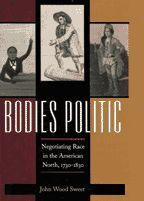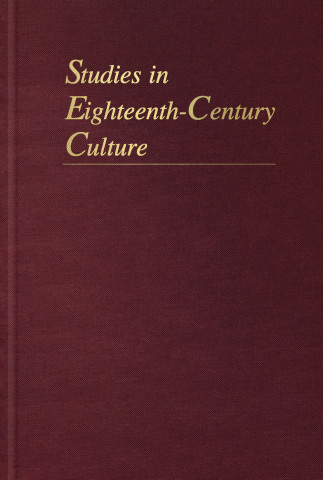
Reviews
Superb... A useful addition to the literature about people of color in [New England]... The major strength of Bodies Politic is that it is based on extensive archival research and a wide reading of secondary literature on Africans and Native Americans. It also presents a significant challenge to hegemonic interpretations that are finally beginning to be addressed by colonial historians... Sweet's yeomanlike work should find a receptive audience among historians, graduate students, and intellectually sophisticated members of the reading public.
This superb study explores the origins of that ironic definition of democracy as 'universal freedom and racial inequality'... Sophisticated and engaging... Highly recommended.
A fascinating picture of the interactions between English settlers, African slaves, and Native Americans in New England during the colonial era and early Republic.
It is difficult to imagine that anyone interested in the ways race was produced and articulated in early America and woven into every fiber of the national fabric would not depend upon and be grateful for Sweet's work.
An ambitious and persuasive account of the ways that the political inclusion of some groups and not others connected the colonial era through the Revolution to the early American republic.
At once detailed and sweeping, social and political, archival and synthetic... This book is the best application yet to early American history of postcolonial theory.
Sweet's brilliant micro-history of the tangled web of race relations in the North dynamically juxtaposes Native American, African American and Anglo-American experiences through a series of case studies.
Sweet's regional history points us away from northern exceptionalism and toward a more honest appraisal of colonialism and its legacies as a national phenomenon... Bodies Politic truly is the best 'multicultural' history of early New England yet to appear not least because of Sweet's refusal to equate race and culture.
He emphasizes that the public was never simply Euro-American, and that categories for, and uses of, racial identity emerged out of complicated socio-cultural negotiations and changed with time and personal background. Bodies Politic is remarkably successful in grounding these assertions in detailed, well-told reconstructions of individual lives and community events.
Sweet offers scholars a capacious history of race in the North and a primer for thinking about the relationship between 'cultures' and identities... Bodies Politic is deeply researched and richly detailed.
Superb... A useful addition to the literature about people of color in [New England]... The major strength of Bodies Politic is that it is based on extensive archival research and a wide reading of secondary literature on Africans and Native Americans.
Bodies Politic is brilliant and eloquent—a refreshingly original analysis of how the legacy of colonialism shaped the emergence of a democratic nation.
This book recasts our vision of early New England. Informed by the insights of post-colonial theory and based on prodigious archival research, it offers a bracing challenge to the current historiography of early America. In the wake of Bodies Politic, it will be impossible to think of New England as a place unmarked by difference and exempt from the nation's original sins of slavery and racism.
John Sweet presents New England as it was: a multiracial and thoroughly conflicted scene. Sex and humor play leading roles in this fine, fresh depiction of the most American of American regions.
In subtle and ingenious ways, Bodies Politic recovers the textures of real people doing real things—of African Americans, Native Americans, and Euro-Americans interacting to create the racial formation of the early nineteenth-century North.
Ambitious, detailed, and provocative, this is the best multicultural history of early New England I have read.
Book Details
List of Illustrations
Acknowledgments
Introduction: After Origins
Part I: Coming Together
Chapter 1. Common Ground
Chapter 2. Negotiating Slavery
Chapter 3. Strange Christians
Part II: Living Together
Chapter
List of Illustrations
Acknowledgments
Introduction: After Origins
Part I: Coming Together
Chapter 1. Common Ground
Chapter 2. Negotiating Slavery
Chapter 3. Strange Christians
Part II: Living Together
Chapter 4. Strange Flesh
Chapter 5. Men of Arms
Chapter 6. Negotiating Freedom
Part III: Moving Apart
Chapter 7. Conceiving Race
Chapter 8. Manifest Destinies
Chapter 9. Hard Scrabble
Epilogue: Democracy in America
Notes
A Note on Sources
Index



